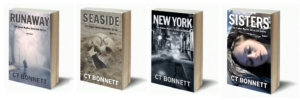I’ve created a series of posts intended to help new writers by sharing my self-publishing experiences after writing fourteen novels and two series.



After navigating the self-publishing world, I’ve learned a few things and my goal is to help the new writer avoid some of my mistakes. I’ll list a few highlights here and follow with more detailed posts. I hope you find this information helpful, and congratulations on your desire to become a published author.
Lesson 1
You don’t have to do everything yourself, but you can if you so desire, and almost every tool is available online. All you must have is a PC and an internet connection. Note that I didn’t say everything was free. I have a paid subscription to Grammarly and Shutterstock as I like to edit on the fly, and I do some of my own covers. I’ve written about the specific tools I’ve used in my later posts.
Lesson 2
Pick a genre that you like, not one that someone told you was hot. Writing is hard enough, don’t make it harder. I chose crime and corruption for one series and police investigative for the second. Both are extremely crowded markets, but that’s what I like. I’ve also written multiple science fiction stand-alone novels when the smart people say I should write a series and shouldn’t switch genres. So much for being a trend follower, plus, the ideas I had for novels didn’t work for a series.
You must be true to yourself and do what feels right for you. C.S. Lewis said, “ Write about what really interests you, whether it is real things or imaginary things, and nothing else.” Lewis began writing because he couldn’t find anything he liked to read. That may sound arrogant, but when was the last good book you read that you thoroughly enjoyed? There is a lot of garbage out there posing as literature.
Lesson 3
Writing is hard work with long hours. Getting a book right takes time and determination. I’ve pushed through that last writer’s edit, where I made a significant change. I was emotionally done with the project, but it wasn’t finished with me. You have to grind it out to completion. You owe it to the reader and yourself to produce the best work possible.
Lesson 4
No one will appreciate how much work you’ve put into your novel, especially the first one. Writing comes down to something you must do. It’s a story that you have to get out, even if no one else on the planet wants to read it. Commercial success only comes after personal success, but the commercial part may never come, so be prepared for that. If commercial success is your prime motivator, you can make more money per hour working in the drive-through at the Golden Arches.
Lesson 5
Find a good editor and develop a close working relationship with that person. Yes, you can send your manuscript off to some unknown destination on the internet, but you’ll get what you pay for. My editor knows my writing style, and if she makes corrections, she knows my voice. We work collaboratively to perform a final read-through before every release. Keep your friends close, and your editor closer.
Lesson 6
From Albert Einstein, ‘Everything should be made as simple as possible, but no simpler.’ Don’t use a five-dollar word when a ten-cent one will do. Gone are the days when circular logic and unpronounceable words the reader had to look up were viewed as good writing. The appropriate words for the situation are paramount to good storytelling.
Please read and comment on the series of posts I’ve provided. My experience is what it is. If you have something to add that will help other writers, I greatly encourage all feedback.